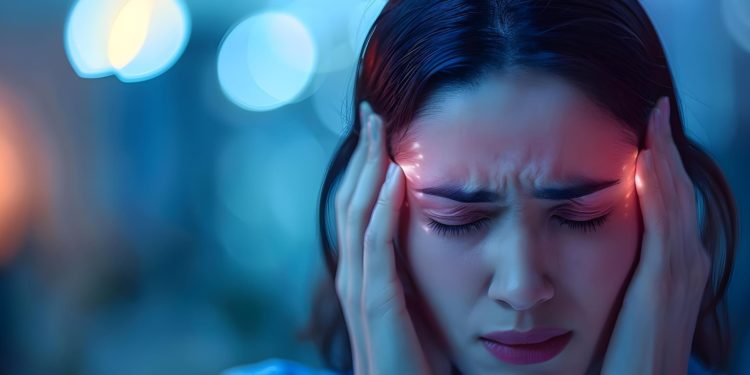Anxiety triggers are certain events, ideas, or situations that cause tension or worry, making a person highly uncomfortable. These triggers can differ greatly between individuals and result from a combination of internal and environmental circumstances. Knowing what makes you anxious is important since it will help you better predict and control your reactions.
The following list includes several distinctive Anxiety triggers:
-
Tense Conditions
Workplace pressure: Anxiety can be brought on by deadlines, high standards, or confrontations at work.
Financial worries: Anxiety can be brought on by worrying about money, debt, or unexpected costs.
Relationship problems: Disagreements, splits, or a sense of being abandoned in a partnership can be emotionally challenging.
-
Social Contexts
Public Speaking: Anxiety triggers might be brought on by the fear of being misunderstood or judged in public.
Social events: For some people, meeting new people or being in big groups can be a source of social anxiety.
Peer pressure: anxiety and triggers can result from feeling pressured to fit in or win over people.
-
Health Issues
Medical conditions: Anxiety can be brought on by concerns about your health or the health of a loved one.
Physical symptoms: Feelings of strange and loss can make you anxious, especially if you think it means something major is wrong.
Chronic illness: Having a long-term medical condition can cause anxiety and triggers all the time.
-
Environmental Elements
Crowded areas: Being in crowded, lively spaces can be unbearable and cause Emotional triggers.
Routine changes: Unexpected adjustments to a person’s everyday schedule or surroundings, such as moving to a new location, can induce anxiety.
Sleep deprivation: Not getting enough sleep can increase your vulnerability to worry.
-
Self-doubt and negative thoughts
Catastrophic thinking: Anxiety can be induced by picturing the worst-case scenario in any given circumstance.
Perfectionism: Anxiety can be brought on by the pressure to be flawless or the fear of making mistakes.
Self-criticism: Doubting your skills and engaging in negative self-talk might make you anxious.
-
Past Trauma
Traumatic events: Mishaps, maltreatment, or grief might result in enduring Anxiety triggers.
PTSD: When a person experiences flashbacks or intense anxiety and triggers, they are likely to be reminded of the traumatic event.
-
Fears
Particular fears: When faced with an object or circumstance that causes anxiety, phobias like the fear of flying, heights, or spiders can become extremely stressful.
-
Excessive Reactivity
Overexposure to unfavorable news or social media regularly can lead to information overload, which in turn can cause anxiety.
Sensory overload: For certain people, bright lights, loud noises, or crowded areas might cause anxiety.
-
Strong Feelings
Blocked emotions: anxiety and triggers can result from denying or repressing undesirable feelings like grief, rage, or irritation.
Anxiety triggers can arise during the grieving process, especially if emotions are not properly dealt with.
The first step in treating your anxiety is figuring out what causes it specifically. Knowing what triggers your anxiety will help a person create coping mechanisms or avoid these situations, which will help you keep your emotional equilibrium because mental health matters.
Nonetheless, many of us occasionally suffer from anxiety day after day. It can be unbearable, leaving us with a stubborn sense of unease or as though we are carrying a huge burden that will never go away. The good news is that you don’t have to let anxiety and triggers rule your life. Gaining emotional balance can be significantly helped by being aware of the things that cause you to experience worry or fear, or what you call your Anxiety triggers.
Everybody will experience these triggers differently, and their severity will also differ. To begin successfully controlling your anxiety, you must determine what triggers it.
Understanding What Causes Anxiety Trigger?
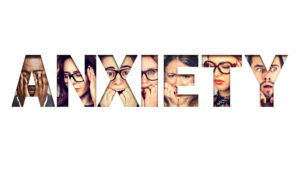
Although anxiety is a normal occurrence, experiencing it can feel quite unusual and intimate. It is possible for one person’s Anxiety triggers to have no effect at all on another, and comprehending why this occurs is essential to effectively treating anxiety. There can be biological, psychological, and environmental triggers for anxiety as well as its underlying causes.
Basically, anxiety is your body’s way of warning you of forthcoming situations in response to stress. Our biology is largely responsible for this reaction. Your body triggers the “fight-or-flight” response when it senses danger, causing the release of adrenaline and cortisol. Your body is primed by these substances to either confront the threat or flee from it.
When faced with coming physical threats, such as predators, our ancestors found this response to be of great use. But in the modern world, less serious events like an approaching job presentation or a packed social gathering might still activate anxiety and triggers.
Anxiety triggers are more sensitive in some individuals than in others. Genetics can be involved; if anxiety runs in your family, you may be more likely to be affected by it personally. Furthermore, abnormalities in brain chemistry, such as those involving neurotransmitters like dopamine and serotonin, might affect how your brain interprets stress and fear and increase your vulnerability to anxiety.
Moreover, your views and ideas have a big impact on how you feel Emotional triggers. For example, you may be more prone to anxiety in uncertain situations if you have an inclination to think in “worst-case scenarios.” Anxiety and triggers can be increased by cognitive misrepresentations such as overgeneralization, catastrophizing, or seeing things in black and white. These mental processes frequently emerge gradually and might be impacted by traumatic or prolonged stressful events in the past.
Your everyday surroundings and way of life, as well as the environment you live in, can have a big impact on your Anxiety trigger levels. Stressful circumstances, such as money troubles, marital issues, or a busy work schedule, can all lead to increased anxiety and triggers. A messy home or a lack of routine are two examples of seemingly insignificant things that can raise your stress and anxiety levels.
Your social surroundings are equally important in avoiding anxiety attacks. Having to deal with toxic or negative relationships, social isolation, or a lack of support can make anxiety more difficult to manage. However, a healthy lifestyle, supportive surroundings, and strong connections can all help lessen the things that make people anxious.
The first step in treating your anxiety is identifying its triggers because mental health matters.
Ultimately, being aware of the underlying causes of your anxiety can enable you to take positive measures to control it.
Your life does not have to be controlled by anxiety, even though it may be a part of it.
Understanding what causes your anxiety and why it occurs might help you develop the skills and techniques necessary to lead a more tranquil and balanced life.
Achievable Activities to Recognize Your Anxiety Trigger
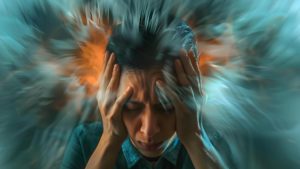
You will need to start noticing your thoughts, feelings, and behaviors in different settings if you want to start figuring out what causes your anxiety and triggers.
Journaling: One effective method for determining triggers is to keep a daily journal. Note what was going on, what you were thinking, and how your body felt every time you experience anxiety. You may eventually identify trends or particular circumstances that frequently cause worry.
Practices of Mindfulness: Being mindful involves letting go of judgment and being fully present in the moment. Through mindfulness practice, you can increase your awareness of your thoughts and feelings as they come up, which will make it easier for you to recognize Anxiety triggers.
For example, if you find your heart rate rising or your mind racing, stop for a moment and consider what could have caused such emotions.
Make a Trigger Tracker: If you make a sheet to log your anxiety and trigger episodes and their causes, it can be helpful. On a scale of 1 to 10, indicate how anxious you are, and make a note of any subjects repeated. You can identify patterns across time and comprehend the causes of your worry by using this activity.
Exercises for Reflection: Take some time to think back on previous instances in which you felt really nervous. What was going on at the moment? Were there any aspects of these circumstances that were similar? Looking back could help you identify Anxiety triggers you were previously unaware of.
Let us be more careful when experiencing anxiety and triggers, pose a series of questions to yourself, such as, “What was I thinking about right before this feeling started?” “Is there a particular circumstance or individual involved?” What was my body’s reaction? You can identify the exact source of your anxiety by asking yourself these questions.
The next stage is to begin controlling your Anxiety triggers when you have identified them. This could be avoiding specific events, altering your perspective on them, or utilizing body- and mind-calming relaxation practices. It is important to approach your anxiety and triggers with interest rather than condemnation. Recognizing your triggers can give you the understanding you need to take charge of your anxiety and triggers without placing the blame or guilt on yourself.
How to be mindful in the moment to avoid anxiety attacks?
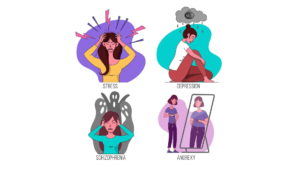
- Pay attention to your breath: Paying attention to your breath is one of the simplest methods to develop mindfulness. Observe the sensation of air entering and leaving your body as you breathe in and out. Bring your thoughts back to your breathing if they stray.
- Utilize your senses: Focus on what you can see, hear, taste, smell, and touch to help you stay grounded in the here and now. By being aware of your senses, you can force yourself to stop thinking and enter the present.
- Exercise non-judgment: Try to examine your thoughts and feelings while engaging in mindfulness exercises without passing judgment. Rather than categorizing them as “good” or “bad,” just acknowledge them and let them go, just like clouds do over the sky.
Even when you’re avoiding anxiety attacks or controlling Anxiety triggers, you can cultivate clarity and calmness with the help of mindfulness exercises. You can lessen the influence of worrisome thoughts and return your attention to the here and now by remaining in the present.
Furthermore, it’s acceptable that not every tactic will be effective for every person. The secret is to try out several tactics and determine which ones are most effective for you.
Mental health matters: How important is it to Define Limits?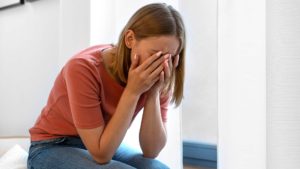
Establishing boundaries is a necessary skill for developing emotional resilience. Setting boundaries enables you to maintain your time, energy, and mental health while concentrating on the things that are genuinely important to you. Without boundaries, it’s simple to get overworked, which heightens anxiety and triggers.
When in doubt, it’s suitable to drop requests or commitments that conflict with your priorities or that take up too much of your time. Maintaining your emotional well-being requires you to respect your boundaries.
Minimize your exposure to stress because mental health matters. Determine the causes of needless stress in your life and work toward minimizing or getting rid of them. This could include reducing the amount of time you spend with unpleasant individuals, consuming fewer mediums, or clearing out clutter in your home.
Make time for self-care a priority in your schedule don’t compromise on it and also avoid Emotional triggers. Self-care activities, such as engaging in outdoor activities, pursuing a hobby, or just taking a moment to unwind, can assist in recharging your emotional reserves and refreshing your resilience.
Nonetheless, develop self-compassion by treating yourself with kindness, particularly when things don’t go as expected.
You must continue developing, learning, and progressing.
Take charge of your life.
This way you are laying the groundwork for a more confident and balanced life.
Aim to empower in life and live fully and freely, regardless of the obstacles or Anxiety triggers you face, rather than only lessen worry.


